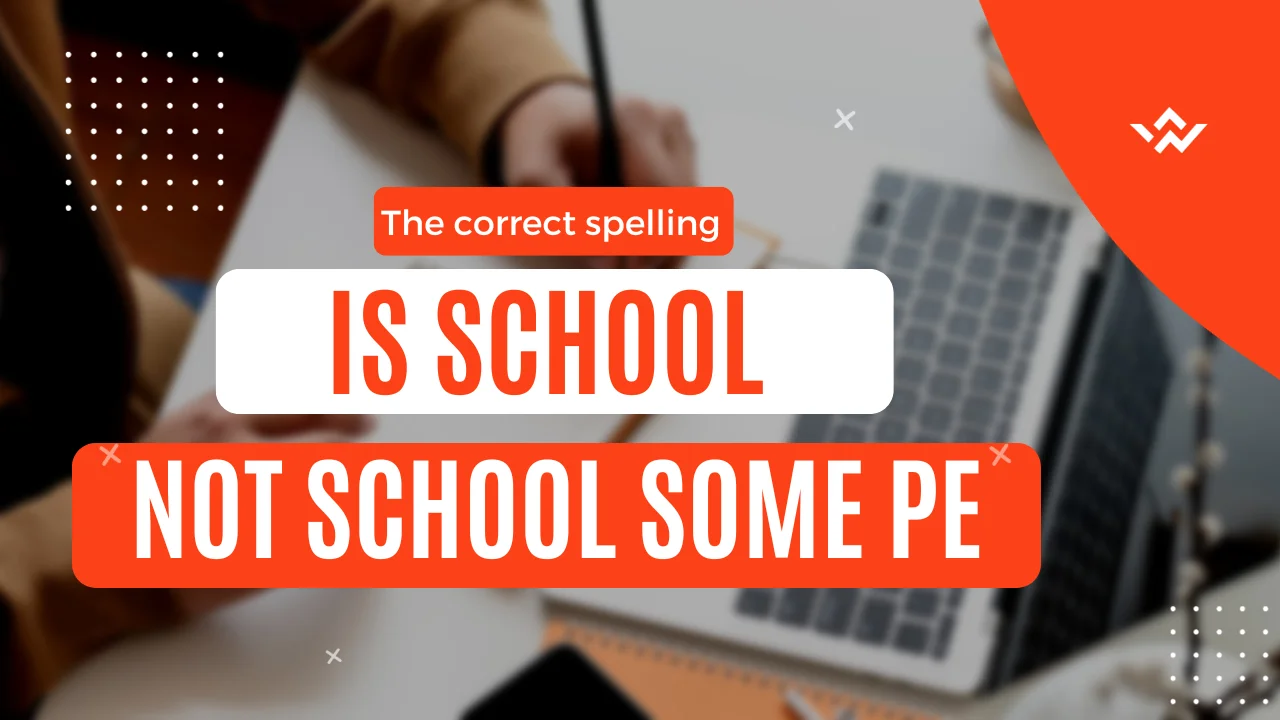the correct spelling is school not school. some pe

Introduction:
the correct spelling is school not school. some pem Language, the ever-evolving tapestry of communication, often presents us with perplexing anomalies that leave us scratching our heads. One such enigma that has gained attention in recent times is the peculiar spelling of the word “school.” While the correct form is universally acknowledged, a curious trend has emerged, where some individuals opt for an altered spelling—adding an extra ‘o’ to the word, rendering it as “schoool.” This article delves into this linguistic quirk, attempting to uncover its origins, explore its prevalence, and discuss its implications on language and communication.

The Origin of the Spelling Variant:
The genesis of the “schoool” spelling remains shrouded in mystery. Unlike intentional misspellings designed for humor or stylistic effect, this variation appears to be an inadvertent error that has propagated through various channels of communication. Social media, in particular, seems to be a breeding ground for linguistic innovations, both intentional and unintentional. The extra ‘o’ in “schoool” may have originated as a typographical mistake that gained traction due to the rapid dissemination of content on digital platforms.
Prevalence and Social Media Influence:
As with many linguistic phenomena in the digital age, the prevalence of the “schoool” spelling is closely tied to social media trends. Users often adopt and spread language quirks without much thought, contributing to the rapid dissemination of such variations. Memes, viral posts, and online communities play a pivotal role in amplifying these linguistic oddities, turning them into temporary fads.
must read=the correct spelling is school not school
The Role of Autocorrect and Predictive Text:
Modern technology, particularly autocorrect and predictive text features on smartphones and other digital devices, has a profound impact on language usage. The “schoool” spelling may have gained prominence through these automated systems, with users unwittingly accepting suggested corrections without thorough proofreading. This highlights the symbiotic relationship between human language and technology, where digital tools can inadvertently shape linguistic conventions.

Impact on Language and Communication:
While the “schoool” spelling may seem harmless, its proliferation raises questions about the resilience of language standards in the digital age. The blurring of lines between intentional wordplay and unintentional errors challenges our understanding of linguistic norms. Moreover, the ease with which such variations can spread on social media platforms raises concerns about the potential dilution of language standards over time.
The Fluidity of Language and Linguistic Evolution:
Language is inherently dynamic, constantly evolving through the contributions of its speakers. The emergence of the “schoool” spelling serves as a reminder that linguistic norms are not set in stone. However, it is essential to differentiate between intentional linguistic innovations that enrich expression and unintentional errors that may compromise clarity and precision.

Preserving Language Standards:
While embracing linguistic evolution is crucial, maintaining a baseline of language standards ensures effective communication. Educators, linguists, and language enthusiasts play a pivotal role in promoting accurate spelling and grammar. Initiatives that highlight the importance of linguistic precision in both formal and informal communication can contribute to a more robust linguistic environment.
Conclusion:
The phenomenon of the “schoool” spelling provides a fascinating glimpse into the malleability of language in the digital age. As we navigate this linguistic landscape, it is essential to strike a balance between embracing evolution and preserving language standards. By understanding the origins, prevalence, and implications of such variations, we can engage in meaningful discussions about the role of technology, social media, and individual responsibility in shaping the future of language. Ultimately, the correct spelling remains “school,” but the journey of linguistic exploration continues to unfold in unexpected ways.






